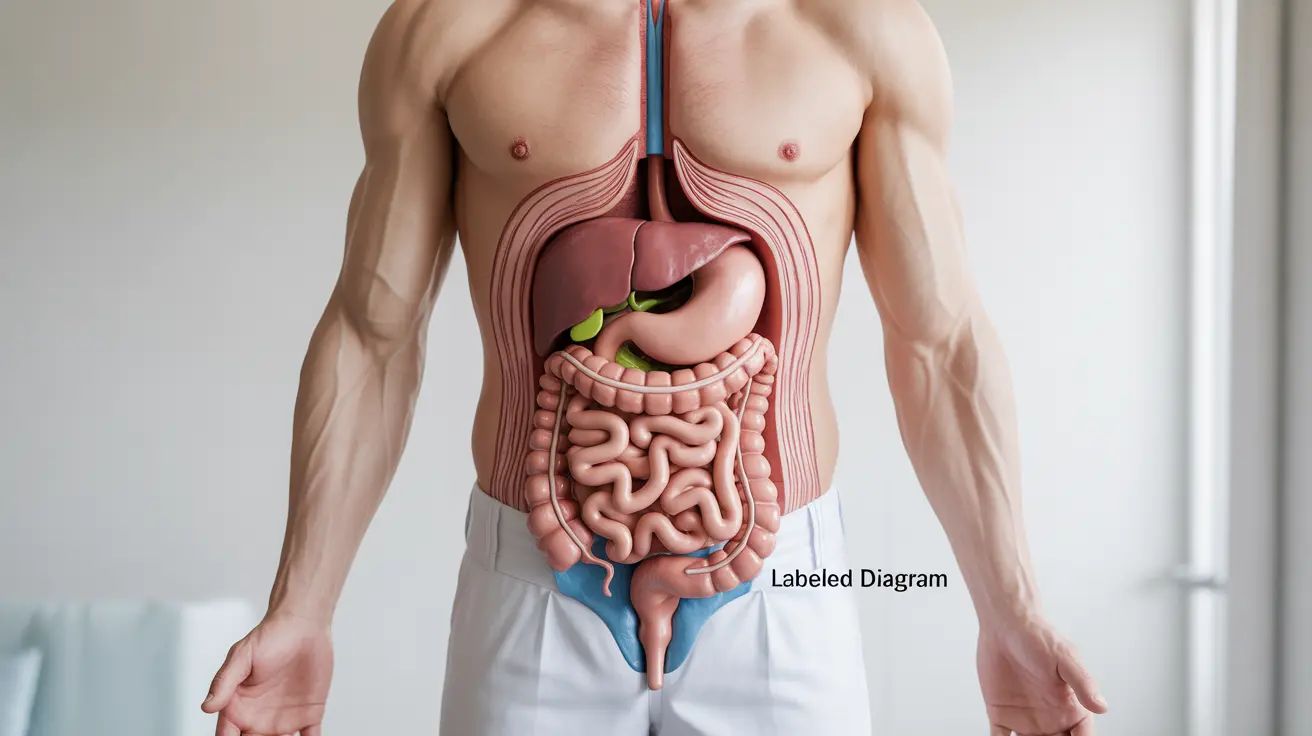Experiencing lower back pain alongside digestive symptoms like upset stomach and diarrhea can be both uncomfortable and concerning. These symptoms often occur together and may signal various underlying conditions that require attention. Understanding the connection between these symptoms and knowing when to seek medical help is crucial for proper treatment and relief.
While some causes may be temporary and manageable at home, others might require immediate medical intervention. Let's explore the various conditions that can lead to these concurrent symptoms and learn about effective management strategies.
Common Causes of Combined Symptoms
Several conditions can cause the simultaneous occurrence of lower back pain, upset stomach, and diarrhea:
Gastrointestinal Infections
Viral or bacterial infections can cause inflammation in the digestive tract, leading to diarrhea and abdominal pain that may radiate to the lower back. Common culprits include gastroenteritis, food poisoning, and bacterial infections.
Inflammatory Bowel Conditions
Chronic conditions like Crohn's disease and ulcerative colitis can cause both digestive symptoms and back pain due to inflammation throughout the digestive system. These conditions often require long-term medical management.
Digestive System Disorders
Conditions such as irritable bowel syndrome (IBS) frequently present with both gastrointestinal symptoms and back pain. The connection often stems from shared nerve pathways and muscle tension patterns.
Serious Medical Conditions to Consider
Appendicitis
This medical emergency typically begins with abdominal pain that may spread to the lower back, often accompanied by digestive disturbances. Other symptoms include fever, loss of appetite, and nausea.
Kidney Infections
Urinary tract infections that spread to the kidneys can cause severe back pain, particularly in the lower back region. These infections may also trigger digestive symptoms and require prompt antibiotic treatment.
Treatment Approaches and Management
Medical Interventions
Treatment depends on the underlying cause and may include:
- Antibiotics for bacterial infections
- Anti-inflammatory medications
- Prescription medications for chronic conditions
- Pain management techniques
Lifestyle Modifications
Several lifestyle changes can help manage symptoms:
- Maintaining proper hydration
- Following a balanced diet
- Regular gentle exercise
- Stress management techniques
- Adequate rest and sleep
When to Seek Medical Attention
Certain warning signs indicate the need for immediate medical evaluation:
- Severe or persistent back pain
- High fever
- Blood in stool
- Extreme weakness or fatigue
- Unexplained weight loss
- Symptoms lasting more than a few days
Frequently Asked Questions
What are the common causes of lower back pain with diarrhea, and when should I see a doctor?
Common causes include gastrointestinal infections, inflammatory bowel conditions, and stress-related disorders. See a doctor if symptoms are severe, persist beyond a few days, or are accompanied by fever, blood in stool, or significant pain.
How is appendicitis diagnosed, and why does it cause both lower back pain and diarrhea?
Appendicitis is diagnosed through physical examination, blood tests, and imaging studies like CT scans. It causes these symptoms because inflammation of the appendix can irritate surrounding tissues and nerves, leading to referred pain in the lower back and digestive disturbances.
Can kidney infections cause symptoms like lower back pain and diarrhea, and what treatment is needed?
Yes, kidney infections can cause lower back pain and digestive symptoms. Treatment typically involves a course of antibiotics, pain management, and increased fluid intake. Hospitalization may be necessary for severe cases.
How do conditions like irritable bowel syndrome (IBS) or inflammatory bowel disease (IBD) contribute to both lower back pain and diarrhea?
IBS and IBD can cause these symptoms through inflammation, muscle tension, and shared nerve pathways between the digestive system and back. The chronic nature of these conditions often leads to ongoing symptoms that require comprehensive management strategies.
What home remedies or lifestyle changes can help manage lower back pain and diarrhea caused by digestive issues?
Effective home remedies include staying hydrated, following a bland diet during flare-ups, using heat therapy for back pain, practicing stress reduction techniques, and maintaining good posture. Regular exercise and proper sleep habits can also help manage symptoms.




